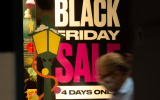
The Federal Government has been urged to strip funding from universities, broadcasters, cultural institutions and festivals that promote or fail to prevent antisemitism.
Australia’s Special Envoy to Combat Antisemitism Jillian Segal made the recommendations in a 16-page report delivered to the Prime Minister Anthony Albanese on Thursday.
Prime Minister Anthony Albanese said the government would consider the report’s recommendations.
It follows a 300 per cent rise in threats, vandalism and physical violence against Jewish Australians.
Last week, an East Melbourne synagogue was set alight, seven months after a firebombing at the Adass Israel Synagogue of Melbourne some 20 minutes away.
There have been multiple incidents of vandalism at Jewish schools and synagogues, as well as a firebombing at the former home of a prominent community leader in Sydney in late 2024.
Segal warned that Australia had reached a “tipping point” that threatened social harmony, undermined trust in institutions and marginalised Jewish Australian citizens.
“Throughout history, Jews have been the ‘canary in the coal mine’,’ Segal said in her conclusion.
“Attacks on Jews often signal broader assaults on society and the gradual breakdown of cohesion.”
Albanese said there was “no place in Australia for antisemitism”.
“Antisemitism has risen to deeply troubling levels in Australia in the wake of the conflict in the Middle East,” he told reporters in Sydney.
“The kind of hatred and violence that we’ve seen on our streets recently is despicable, and it won’t be tolerated.”
When asked about scrutiny of Israel, Albanese said people had a right to their perspectives, but did not have a right to bring conflict to Australia.
“Whatever your view on the Middle East, it is not advanced by attacking people here in Australia because of who they are, because of their faith, because of their identity — it’s completely unacceptable,” he told reporters in Sydney, standing alongside Segal.
He welcomed her plan, but noted the government and society would need to collaborate to ensure anti-Semitism was “pushed to the margins”.
The recommendations included:
- Withholding funding from universities, programs or individuals within universities that facilitate, enable or fail to act against antisemitism
- Investigating sources of overseas funding entering public institutions, including universities, which might drive extreme ideologies.
- Including terms in all public funding agreements with cultural institutions or festivals to end funding where the institution or festival promotes, facilitates or does not deal effectively with hate or antisemitism
- Remove deductible gift recipient status from any charitable institution which promotes speakers or engages in conduct that promotes antisemitism
- Embedding Holocaust and antisemitism education in national and state school curricula
- Developing a university “report card”, assessing each university’s implementation of effective practices and standards to combat antisemitism, including complaints systems and best practice policies
- Screening visa applicants for antisemitic views or affiliations, consistent with a risk-based approach.
- Ensuring the Migration Act effectively facilitates visa refusals or cancellations for antisemitic conduct and rhetoric
“Universities will continue to be held accountable,” said Segal in Sydney as she delivered her findings to the federal government.
“When my report speaks of education … it is not just about education on the history of the Middle East or education about anti-Semitism, it is education about how to have civil dialogue and we’ve lost that.”
About 60 per cent of Australian Jewish students who experienced anti-Semitism in 2024 felt unsupported by their institutions, according to a survey by the Australian Union of Jewish Students referred to in Segal’s report.
There are some concerns that the plan could stifle legitimate criticism of Israel, whose violence in Gaza — in the wake of the October 7, 2024, killings of Israeli citizens by Hamas — has resulted in the deaths of more than 57,000 Palestinians.
A slew of Australian arts bodies, including the Melbourne Symphony Orchestra, the State Library of Australia and Creative Australia, faced backlash after revoking opportunities from artists who had been outspoken critics of Israel.
And the report recommended that higher education institutions and all levels of government adopt the International Holocaust Remembrance Alliance’s controversial definition of antisemitism, which has been criticised for conflating criticism of Israel and Zionism with antisemitism.
Segal’s report has been in the works since her July 2024 appointment, which itself was a response to a rise in antisemitism following Hamas’s October 7 attacks and Israel’s subsequent violence against Palestinians in Gaza.
-with AAP










